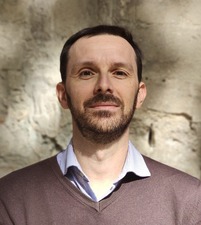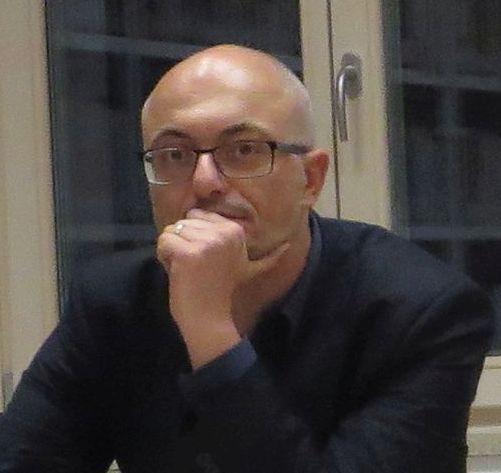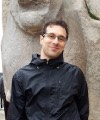Studying at the University of Verona
Here you can find information on the organisational aspects of the Programme, lecture timetables, learning activities and useful contact details for your time at the University, from enrolment to graduation.
Academic calendar
The academic calendar shows the deadlines and scheduled events that are relevant to students, teaching and technical-administrative staff of the University. Public holidays and University closures are also indicated. The academic year normally begins on 1 October each year and ends on 30 September of the following year.
Course calendar
The Academic Calendar sets out the degree programme lecture and exam timetables, as well as the relevant university closure dates..
| Period | From | To |
|---|---|---|
| I semestre sede Trento | Sep 15, 2014 | Dec 23, 2014 |
| semestrino IA | Sep 29, 2014 | Nov 15, 2014 |
| Semestrino IB | Nov 17, 2014 | Jan 17, 2015 |
| II semestre sede Trento | Feb 9, 2015 | May 30, 2015 |
| Semestrino IIA | Feb 23, 2015 | Apr 18, 2015 |
| Semestrino IIB | Apr 20, 2015 | Jun 6, 2015 |
| Session | From | To |
|---|---|---|
| Sessione invernale | Jan 19, 2015 | Feb 21, 2015 |
| Sessione estiva | Jun 8, 2015 | Jul 31, 2015 |
| Sessione autunnale | Aug 31, 2015 | Sep 26, 2015 |
| Session | From | To |
|---|---|---|
| Sessione estiva | Jul 7, 2015 | Jul 8, 2015 |
| Sessione autunnale - I appello | Oct 27, 2015 | Oct 28, 2015 |
| Sessione autunnale - II appello | Dec 15, 2015 | Dec 16, 2015 |
| Sessione invernale straordinaria | Mar 15, 2016 | Mar 16, 2016 |
| Period | From | To |
|---|---|---|
| Festa di Ognissanti | Nov 1, 2014 | Nov 1, 2014 |
| Festa dell'immacolata | Dec 8, 2014 | Dec 8, 2014 |
| VACANZE DI NATALE | Dec 22, 2014 | Jan 6, 2015 |
| Vacanze di Pasqua | Apr 2, 2015 | Apr 7, 2015 |
| Festa della Liberazione | Apr 25, 2015 | Apr 25, 2015 |
| Festa dei Lavoratori | May 1, 2015 | May 1, 2015 |
| Festa del S. Patrono S. Zeno | May 21, 2015 | May 21, 2015 |
| Festa della Repubblica | Jun 2, 2015 | Jun 2, 2015 |
| Vacanze Estive | Aug 10, 2015 | Aug 16, 2015 |
Exam calendar
Exam dates and rounds are managed by the relevant Culture and Civilisation Teaching and Student Services Unit.
To view all the exam sessions available, please use the Exam dashboard on ESSE3.
If you forgot your login details or have problems logging in, please contact the relevant IT HelpDesk, or check the login details recovery web page.
Should you have any doubts or questions, please check the Enrollment FAQs
Academic staff
 giovanni.bernardini@univr.it
giovanni.bernardini@univr.it
 giovanni.ciappelli@univr.it
giovanni.ciappelli@univr.it
 giorgia.proietti@unitn.it
giorgia.proietti@unitn.it
Study Plan
The Study Plan includes all modules, teaching and learning activities that each student will need to undertake during their time at the University.
Please select your Study Plan based on your enrollment year.
1° Year
| Modules | Credits | TAF | SSD |
|---|
Medieval History, History of Christianity and Churches
Early Modern History I - LM (Historical Anthropology)
Contemporary History I - LM
History of Science and Technology - LM
History of Political Thought
Contemporary Italian Literature II
History of Contemporary Art II - LM
History of Medieval Art I
History of Modern Art II
Italian Philology II (Medieval and Humanistic Philology)
Medieval Latin Literature II
Digital tools for historical research
2° Year activated in the A.Y. 2015/2016
| Modules | Credits | TAF | SSD |
|---|
| Modules | Credits | TAF | SSD |
|---|
Medieval History, History of Christianity and Churches
Early Modern History I - LM (Historical Anthropology)
Contemporary History I - LM
History of Science and Technology - LM
History of Political Thought
Contemporary Italian Literature II
History of Contemporary Art II - LM
History of Medieval Art I
History of Modern Art II
Italian Philology II (Medieval and Humanistic Philology)
Medieval Latin Literature II
Digital tools for historical research
| Modules | Credits | TAF | SSD |
|---|
Legend | Type of training activity (TTA)
TAF (Type of Educational Activity) All courses and activities are classified into different types of educational activities, indicated by a letter.
Early Modern History I - LM (Historical Anthropology) [Sede VR] (2014/2015)
Teaching code
4S001217
Teacher
Coordinator
Credits
6
Also offered in courses:
- Early Modern History (m) of the course Postgraduate Degree in Art Studies
- Historical anthropology (m) of the course Master’s degree in Tradition and Interpretation of Literary Texts
Language
Italian
Scientific Disciplinary Sector (SSD)
M-STO/02 - MODERN HISTORY
Period
semestrino IA, Semestrino IB
Location
VERONA
Learning outcomes
Educational objectives
To acquire awareness of the difference between societies and cultures chronologically or geographically distant from one another; to familiarize with research tools which history has developed in conjunction with social theory; to develop strategies for the interpretation of relevant and diverse sources; to appraise the tradition of study in this field and discuss its problems.
Program
Syllabus
The course will concern the early modern religious life experience, particularly in the forms authorities regarded as transgressive. Witchcraft, its prosecution, and the varieties of belief in the supernatural will receive special attention.
The first part of the course will offer a survey of the basic concepts in historical anthropology with particular reference to the early modern period. The second part of the course will be entirely structured as a seminar. We will examine various sources (from archives, bibliograpy and/or iconography) that will be analyzed and discussed in the lecture room. This format will require an active participation of students, which will form a key element of the final assessment of their work.
Attendance is therefore recommended only if it can be continuous and active.
Reference books:
For those students who will be attending lessons the exam bibliography will be given during the course; P.P. Viazzo, Introduzione all’antropologia storica, Laterza, Roma-Bari, 2000 will be required reading.
Those who will not be attending will read P.P. Viazzo’s volume and three of the following books, or groups of books, of their choice:
- G. Ferigo, Morbida facta pecus. Scritti di antropologia storica della Carnia, Forum, Udine, 2012
- J.H. Hajes, Posseduti ed esorcisti nel mondo ebraico, Bollati Boringhieri, Milano, 2010;
- J.H. Arnold, Belief and Unbelief in Medieval Europe, Bloomsbury, London, 2010;
- E.E. Evans Pritchard, Stregoneria, oracoli e magia tra gli Azande, Raffaello Cortina, Milano, 2002;
- M. Douglas, Purezza e pericolo. Un’analisi dei concetti di contaminazione e tabù, il Mulino, Bologna, 2003;
- P. Brown, La società e il sacro nella tarda antichità, Einaudi, Torino, 1988;
- G. Delille, L'economia di Dio. Famiglia e mercato tra cristianesimo, ebraismo, Islam, Salerno libri, Roma, 2013
- C. Zika, The Appearance of Witchcraft. Print and Visual Culture in Sixteenth-Century Europe, Routledge, London, 2007
- G. Levi, L’eredità immateriale. La carriera di un esorcista nel Piemonte del Seicento, Einaudi, Torino, 1985;
- C. Walker Bynum, Christian Materiality. An Essay on Religion in Late Medieval Europe, Zone Books, New York, 2011
- E.P. Thompson, Società patrizia, cultura plebea. Otto saggi di antropologia storica sull'Inghilterra del Settecento, Einaudi, Torino, 1981;
- J. Cole, E. Wolf, La frontiera nascosta, La Nuova Italia Scientifica, Roma, 1994;
- J. Goody, L’addomesticamento del pensiero selvaggio, FrancoAngeli, Milano 1990 – to be read together with D.F. McKenzie, La sociologia di un testo. Oralità, alfabetismo e stampa all'inizio del XIX secolo, in Id., Il passato è il prologo, edizioni Sylvestre Bonnard, Milano 2002, pp. 43-91;
- M. Sluhovsky, Believe Not Every Spirit: Possession, Mysticism, & Discernment in Early Modern Catholicism, University of Chicago Press, Chicago, 2007
- F. Loetz, Dealings with God. From blasphemers in early modern Zurich to a cultural history of religiousness, Ashgate, Farnham, 2009;
- D.W. Sabean, Property, production and family in Neckarhausen, 1700-1870, Cambridge University Press, Cambridge, 1990;
- K. Crawford, European Sexualities. 1400-1800, Cambridge University Press, Cambridge, 2007.
Examination Methods
Exam methods
For those students who will be attending lessons: essay on a previously agreed topic, followed by oral interview.
For those who will not be attending: oral interview.
Type D and Type F activities
Modules not yet included
Career prospects
Module/Programme news
News for students
There you will find information, resources and services useful during your time at the University (Student’s exam record, your study plan on ESSE3, Distance Learning courses, university email account, office forms, administrative procedures, etc.). You can log into MyUnivr with your GIA login details: only in this way will you be able to receive notification of all the notices from your teachers and your secretariat via email and soon also via the Univr app.
Linguistic training CLA
Double degree
The University of Verona, through a network of agreements with foreign universities, offers international courses that enable students to gain a Double/Joint degree at the time of graduation. Indeed, students enrolled in a Double/Joint degree programme will be able to obtain both the degree of the University of Verona and the degree issued by the Partner University abroad - where they are expected to attend part of the programme -, in the time it normally takes to gain a common Master’s degree. The institutions concerned shall ensure that both degrees are recognised in the two countries.
Places on these programmes are limited, and admissions and any applicable grants are subject to applicants being selected in a specific Call for applications.
The latest Call for applications for Double/Joint Degrees at the University of Verona is available now!
Graduation
List of theses and work experience proposals
| theses proposals | Research area |
|---|---|
| Ambiti di tesi | Art & Architecture - Art & Architecture |
Student mentoring
Student login and resources
Manifesto degli studi
Manifesto degli studi del CdLM interateneo in Scienze storiche
Documents
| Title | Info File |
|---|---|
|
|
pdf, it, 466 KB, 26/02/24 |
|
|
pdf, it, 456 KB, 26/02/24 |

 +39 045802 8351
+39 045802 8351

























